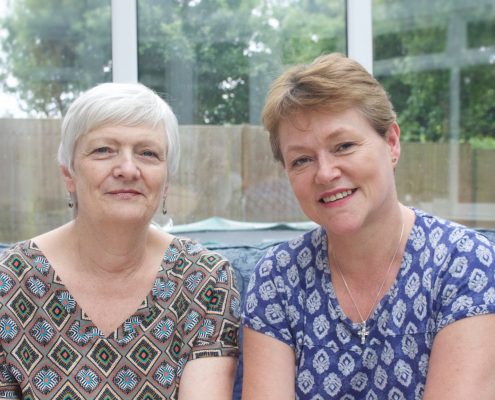Children, not Chickens
16th July 2018
Share this entry:
By Anne Gladstone and Gaynor Rice
Anne Gladstone and Gaynor Rice are Early Years Consultants and Educators, and will be giving a seminar about the below topic (“A developmental approach to school readiness”) at Childcare Expo Midlands 2018 on Saturday 29th September.
We find the term ‘school readiness’ very distressing; it reminds us of ‘oven ready’ chickens which are prepared according to a pre-determined method on a production line, at the end of which they all end up looking more or less the same, even though originally they each had characteristics which made them recognisable as individuals.
In striving for ‘school readiness’, our education system is becoming a production line. Children are all born as unique little individuals who are already able to discover, learn about and adapt to their world. So why then, as soon as children reach the age of five (or before), does it become necessary to forget about their amazing individual talents and abilities and to begin to ‘pre-pack’ them for the school system?
In our opinion, ‘school readiness’ implies that children are essentially ‘imperfect’ and need to be standardised to fit the system which isn’t actually designed to nurture and support them as individuals, but rather to get children ready to become passive receivers of facts, be good at sitting still, to know how to queue up quietly and above all, pass the required assessments in order to ensure that the school is meeting its targets – the school, not the children!
All the well-founded theory about children’s development has been conveniently forgotten and the mantra of ‘raising standards’ has become the order of the day. In order to raise standards, we are told that children need to be ‘school ready’.
The question for us is – are schools ‘child ready’? There are many teachers and other practitioners doing great work in Early Years, despite the pressure of ‘school readiness’, but the National Curriculum seems to be bearing down onto early years practitioners, creating the pressure for reading, writing and mathematics to be formally taught at an increasingly younger age. However, children need to develop a conceptual understanding of the world before we start to introduce formal systems.
You only have to look at our abysmal literacy and numeracy rates in the UK to realise that our current system has flaws. Focusing on ‘school readiness’ isn’t going to help. We should be looking closely at the system itself and asking if it is fit for purpose in the modern world. We need children to grow into flexible, free-thinking and innovative individuals in order to succeed in a fast-changing world. Our education system should nurture children’s natural abilities, not close them down with narrow, production line thinking.
Crucially, we as practitioners need to understand the pivotal importance of our role as advocates for children. Speaking out about the value of play and the need to avoid “schoolification” is imperative, but we also have to practice what we preach – literally. We must ensure that our provision reflects our principles and supports every child’s natural development whatever their individual differences, so that their right to active and independent learning is upheld, and that their feelings, and ultimately well-being, are not overlooked, thus enabling them to reach their full potential.
Why attend Childcare Expo?
Join over 2,500 like-minded individuals from the early years sector who are dedicated to improving both practice and their childcare settings.
Attend educational seminars to credit your CPD
Meet the experts to have your questions answered
Receive fantastic onsite offers and discounts
Experience expert-led informative hands-on workshops
Network with peers and industry players
Pick up hundreds of new product ideas and services
And most of all, enjoy a great day out with your colleagues





